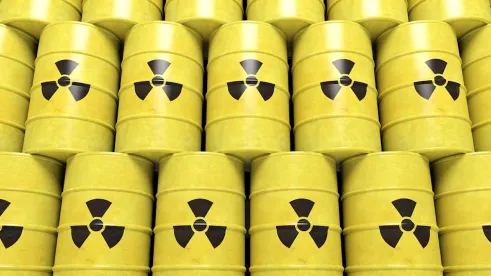One of the two things in EPA's National Enforcement and Compliance Initiative for PFAS that caught my eye also caught the eye of Suzanne Yohannan at Inside PFAS Policy.
That thing was that EPA Assistant Administrator Uhlmann said "if EPA designates PFOA and PFOS as hazardous substances," then EPA's PFAS compliance initiative would apply to those PFAS.
I was surprised by Assistant Administrator Uhlmann's use of "if" instead of "soon, when" respecting these PFAS that have already been the subject of considerable attention from EPA and many States.
Today Ms. Yohannan reports that she asked EPA about that word choice, and that an EPA spokesperson answered that it says "if" rather than "when" "because the outcome of the rulemaking process is not yet predetermined."
That brings to mind what Christian Bale, playing Irving Rosenfeld, had to say in the penultimate scene of American Hustle -- "really, that's the story you want to go with . . . that doesn't sound so good for your whole thing. . . ."
In the first year of the Biden Administration, EPA released a very ambitious PFAS Strategic Road Map. That October 2021 road map reported that EPA's "Fourth Regulatory Determinations" in March of 2021 included a "final determination to regulate Perfluorooctanoic acid (PFOA) and Perfluorooctane sulfuric acid (PFOS) in drinking water because of the risk associated with the presence of those PFAS in drinking water at the most minute concentrations. The final regulation was "anticipated" in the fall of 2023.
In the meantime, in June of 2022, EPA decided to dramatically decrease the Obama Administration EPA health advisory levels for PFOA and PFOS. As I wrote at the time, the only explanation for this step that wasn't anticipated in its PFAS road map only months earlier is that EPA had concluded that the health risks associated with these PFAS was so great that it had to take this detour.
Given all of that, it certainly seems "predetermined" that these two PFAS should be hazardous substances as defined in CERCLA and, given the panic which has ensued regarding the presence of PFAS in our environment, including because of the tidal wave of litigation that has followed EPA and State determinations about the "forever chemicals", that should happen sooner rather than later. Of course, EPA's action will be challenged in court but given the billions of dollars that have been spent already to remove PFAS from our environment, and the billions more that will be spent, it is in everyone's best interests that EPA reach its conclusions and then defend them in court has soon as possible.
So why is Assistant Administrator Uhlmann saying ‘if’ and not ‘soon, when’?” Jeffrey Porter, chair of the environmental law practice at the law firm Mintz, says in an Aug. 18 post on his law firm’s website. He continued, “And, if EPA really means ‘if’, what does it mean about the human health conclusions that have already been reached if PFAS aren't a hazardous substance but so many other less maligned chemicals are.” The EPA spokesman explains to Inside PFAS Policy, “We say ‘if,’ rather than ‘when’ because the outcome of the rulemaking process is not predetermined.”




 />i
/>i
